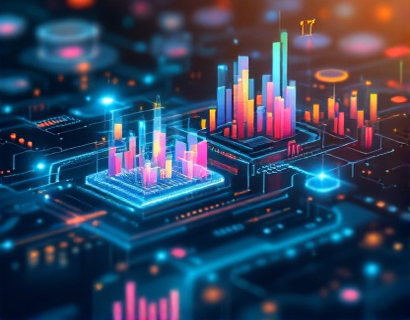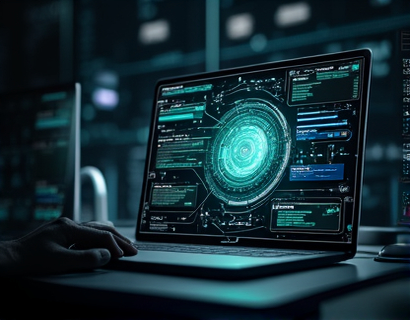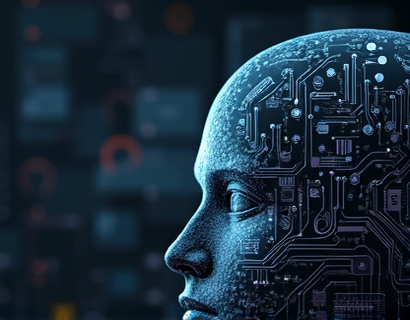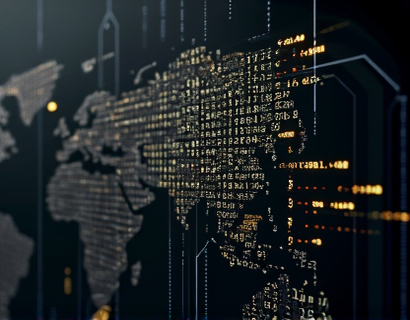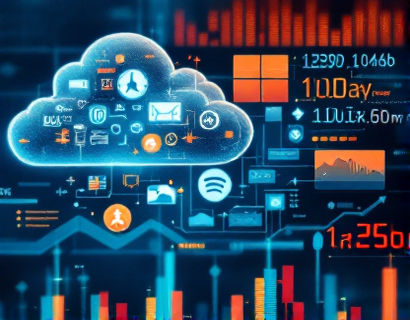Unlocking Enhanced Productivity in the Digital Age: The Synergy of AI and Cryptocurrency
The digital age has ushered in a revolution in how we approach productivity and task management. At the forefront of this transformation are advanced technologies such as Artificial Intelligence (AI) and Cryptocurrency. These two domains, once perceived as separate entities, are now converging to create powerful tools that enhance efficiency, streamline processes, and redefine the boundaries of what is possible in the modern workplace. This article delves into the intricate ways AI and cryptocurrency are merging to unlock unprecedented levels of productivity, offering insights into the future of digital solutions.
The Intersection of AI and Cryptocurrency
The convergence of AI and cryptocurrency is not merely a coincidence but a strategic alignment of technologies that complement each other's strengths. AI, with its ability to process vast amounts of data, learn from patterns, and make intelligent decisions, is finding new applications in the realm of cryptocurrency. Conversely, cryptocurrency provides a decentralized, secure, and transparent medium for AI systems to operate, exchange data, and incentivize participation. This synergy is giving rise to innovative solutions that are reshaping various industries.
Enhanced Security through Blockchain and AI
One of the most significant benefits of combining AI with cryptocurrency is the enhancement of security measures. Blockchain technology, the backbone of cryptocurrency, offers a decentralized and immutable ledger that ensures data integrity and transparency. AI can further bolster these security features by detecting anomalies, predicting potential threats, and automating responses to security breaches. For instance, AI-driven systems can monitor blockchain transactions in real-time, identifying suspicious activities and alerting users or administrators to take preventive actions. This dual-layer security approach is crucial in an era where cyber threats are becoming increasingly sophisticated.
Automation and Efficiency Gains
AI's prowess in automation is well-documented, and when applied to cryptocurrency, it can lead to substantial efficiency gains. Smart contracts, self-executing contracts with the terms directly written into code, are a prime example. AI can optimize the execution of smart contracts by analyzing conditions, predicting outcomes, and automating the necessary actions. This reduces the need for intermediaries, speeds up transaction processing, and minimizes human error. In financial services, for instance, AI-driven platforms can manage complex trading strategies, execute trades at optimal times, and adjust strategies based on market dynamics, all while ensuring compliance with regulatory requirements.
Personalized User Experiences
The integration of AI and cryptocurrency also paves the way for highly personalized user experiences. AI algorithms can analyze user behavior, preferences, and transaction patterns to provide tailored recommendations and services. In the context of cryptocurrency, this means creating customized investment portfolios, offering personalized financial advice, and enhancing user interfaces to match individual needs. For example, a cryptocurrency trading platform powered by AI can learn from a user's trading history and market preferences to suggest optimal investment strategies, monitor portfolio performance, and alert users to potential opportunities or risks.
Decentralized Finance (DeFi) and AI
Decentralized Finance (DeFi) is a rapidly growing sector that leverages blockchain technology to create financial systems without traditional intermediaries. AI plays a crucial role in enhancing DeFi platforms by providing advanced analytics, risk assessment, and automated trading. AI models can analyze vast datasets to identify market trends, predict price movements, and optimize asset allocation. This not only improves the efficiency of DeFi protocols but also makes them more accessible and user-friendly. For instance, AI-driven bots can execute complex DeFi strategies, manage liquidity, and handle risk management tasks, allowing users to focus on higher-level decision-making.
Supply Chain Optimization
Beyond finance, the combination of AI and cryptocurrency is revolutionizing supply chain management. AI can optimize supply chain operations by predicting demand, managing inventory, and streamlining logistics. Cryptocurrency, particularly stablecoins, provides a stable and efficient means of transaction within these systems. Smart contracts can automate payments, ensure timely deliveries, and enforce contractual obligations without the need for intermediaries. This not only reduces costs but also increases transparency and trust among all parties involved. For example, a global supply chain can use AI to monitor real-time data from sensors and IoT devices, while transactions are securely handled through a blockchain network powered by cryptocurrency.
Incentivization and Tokenomics
Cryptocurrency enables innovative incentivization mechanisms that can significantly boost productivity and engagement. By issuing tokens that represent specific assets, services, or contributions, organizations can motivate users to participate actively in their ecosystems. AI can enhance these tokenomics by analyzing user behavior to design more effective incentive structures. For instance, an AI system can identify the most impactful actions within a community and adjust token rewards accordingly, ensuring that the most valuable contributions are properly recognized and rewarded. This creates a virtuous cycle where users are motivated to contribute more, leading to a more dynamic and productive community.
Data Privacy and AI
Data privacy is a critical concern in the digital age, and the combination of AI and cryptocurrency offers robust solutions. Blockchain's inherent transparency and immutability, combined with AI's ability to anonymize and secure data, can create highly secure and private data management systems. AI can help in developing advanced encryption methods and zero-knowledge proofs, ensuring that sensitive information remains confidential while still being useful for analysis and decision-making. This is particularly important for industries handling sensitive data, such as healthcare and finance, where compliance with regulations like GDPR is mandatory.
Challenges and Considerations
While the potential benefits are substantial, the integration of AI and cryptocurrency also presents challenges that must be addressed. Regulatory uncertainty remains a significant hurdle, as governments worldwide are still grappling with how to regulate these emerging technologies. Additionally, the technical complexity of integrating AI with blockchain systems requires expertise and resources. There is also the issue of scalability, as current blockchain networks may struggle to handle the high transaction volumes required for widespread AI applications. However, ongoing research and development are addressing these challenges, paving the way for more robust and practical solutions.
Future Prospects
The future of AI and cryptocurrency integration holds immense promise. As technology advances, we can expect more seamless and efficient integration, leading to even greater productivity gains. The development of more powerful AI algorithms, combined with the scalability and security improvements in blockchain technology, will unlock new possibilities. For instance, the rise of Web3, a decentralized internet powered by blockchain, AI, and other advanced technologies, promises a more equitable and user-centric digital landscape. In this future, AI-driven applications will be seamlessly integrated into everyday tasks, making productivity tools more intuitive, powerful, and accessible.
Moreover, the convergence of AI and cryptocurrency is likely to foster innovation in various sectors, from healthcare to education, by providing secure, efficient, and transparent solutions. The potential for creating decentralized applications (dApps) that leverage AI for enhanced functionality is vast, offering new opportunities for developers and users alike. As the ecosystem matures, we can anticipate a more interconnected and intelligent digital world, where AI and cryptocurrency work hand in hand to drive progress and efficiency.



